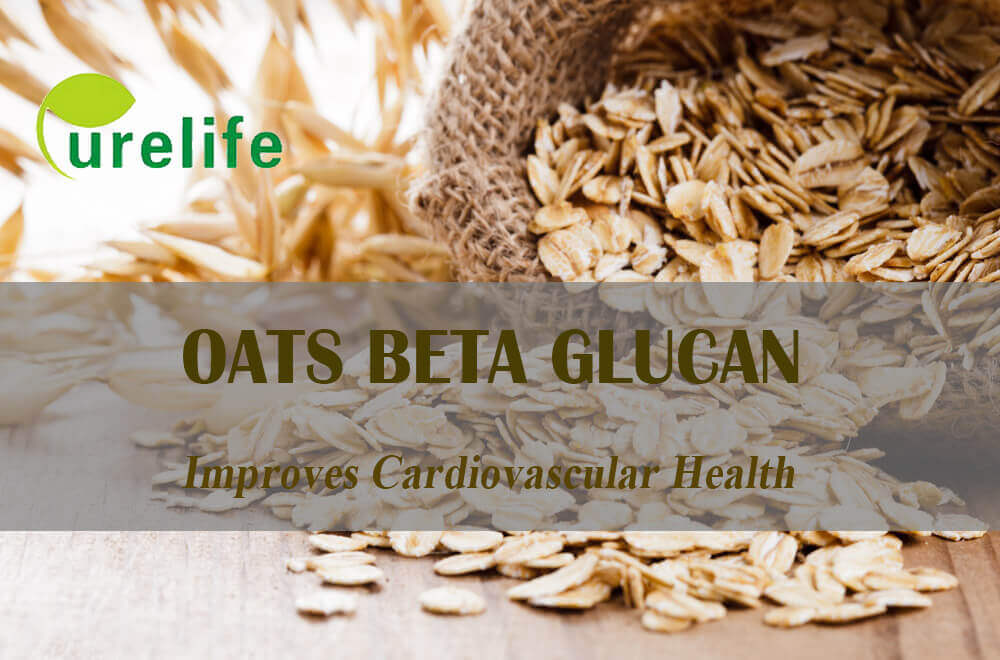Oats Beta Glucan improves cardiovascular health
Oats are a whole-grain food, known scientifically as Avena sativa. It is mainly eaten as porridge, as an ingredient in breakfast cereals, and in baked goods (oatcakes, oat cookies, and oat bread). Over the past few decades, oats have become a very popular “health food.” One of active ingredients that oats are rich in is beta glucan, a type of soluble fibre that slows down the absorption of carbohydrates into the bloodstream. And according to studies, oats and oat-based products significantly reduces total cholesterol and low-density lipoprotein cholesterol concentrations without adverse effects on high-density lipoprotein cholesterol or triglyceride concentrations. Oats Beta Glucan improves cardiovascular health very well.

Now, as a popular health food , most people know that oats lowers cholesterol, and reduces the risk of cardiovascular disease, but previous experiments focused on the fact that oats have lower LDL cholesterol(also known as bad cholesterol) level, as LDL cholesterol can accumulate in the lining of blood vessels, which causes blood vessel blockages and thrombosis.
But more and more studies indicate that an accurate assessment of cardiovascular health risks still needs to measure other two markers: Non-high-density lipoprotein cholesterol (non-HDL, total cholesterol minus healthy cholesterol) and apolipoprotein B, which is a lipoprotein that carries bad cholesterol through the blood. These two indicators are very useful for patients with type 2 diabetes and metabolic syndrome because patients with these two diseases do not show HDL levels.
A new randomized controlled trial of systematic evaluation and meta-analysis that was conducted by Dr Vuksan, the Research Scientist and Deputy Director of Risk Factor Transformation Center in St. Michael’s Hospital has found intaking oat fiber can reduce above three indicators.
The researchers analyzed 58 clinical experiments involving about 4,000 people from around the world, mainly comparing oats beta glucan diets and controlled diets, and measuring indicators include LDL cholesterol, non-HDL cholesterol and apolipoprotein B.
The result shown that compared with controlled diets, taking 3.5 grams of oats beta glucan foods daily moderately improves the level of LDL cholesterol, non-HDL cholesterol, and apolipoprotein B.Overall, LDL cholesterol decreased by 4.2%, non-HDL cholesterol decreased by 4.8 %, and apolipoprotein decreased by 2.3 %.
Oats are rich in beta-glucan, a dietary fiber that slows the absorption of carbohydrates into the blood and prevents blood sugar and insulin peaks. In 1963, the study found for the first time that an oatmeal bread containing 140 grams of oatmeal was used instead of white bread can reduce LDL cholesterol level.
Dr Vuksan said it could be difficult for people to consume the recommended amount of oat fiber by eating oat meal alone, so he recommends people increase their consumption of oat bran.
For example, one cup of cooked oat bran (88 calories) contains the same quantity of beta-glucan as double the amount of cooked oat meal (166 calories).
Oat bran can also be eaten as a cereal, used in some baked goods – although since it is low in gluten, the texture may be tough – or sprinkled on other foods.


